Xi Jinping
Yao Guofu (Yibao: https://yibaochina.com/?p=256540)
[People News] Looking at Xi Jinping’s words and deeds since he came to power, it is obvious that he is a man mocked by Chinese culture as lacking independent thought and creative ability—one who is “carving a mark on a moving boat to find the sword,” “Dongshi imitating Xishi”—blindly worshipping and obsessively imitating Mao Zedong, modeling after him in almost everything.
Xi’s Imitation of Mao
1. Large-scale personality cult. Like Mao Zedong, Xi Jinping has built up a strong personality cult around himself, including publishing books (such as The Governance of China series), making cartoons, popular songs, and dances for propaganda. Like Mao, most of Xi’s books were written by others, but he put his own name on them for publication, using privilege to demand royalties and amassing huge wealth. Xi is officially called the “People’s Leader,” a title previously granted only to Mao Zedong. In addition, Liangjiahe, where Xi lived when sent to the countryside, has been decorated as a place to promote his early experiences, similar to Mao’s birthplace in Shaoshan. This cult is meant to reinforce his status as the Party’s core. Xi revived Mao-style “criticism and self-criticism” mechanisms, requiring Party members to declare loyalty, and through the anti-corruption campaign, he has manufactured fear to ensure obedience. Xi stresses that Party members must “at any time, under any circumstances” be loyal to him; anyone whose words or actions he deems disloyal will inevitably end up dismissed, imprisoned, dead, or disappeared.
2. Restoration of concentrated power and personal dictatorship. Xi ended the term limit for the state presidency (2018 constitutional amendment) and emphasised absolute subordination within the Party, similar to the one-man leadership model of Mao’s era. Both are the most powerful dictators since the CCP seized power, holding life-and-death authority over subordinates.
3. Reviving the philosophy of struggle. Mao Zedong revered the philosophy of struggle throughout his life. His famous Cultural Revolution slogan, “Fighting with heaven, fighting with earth, fighting with man—endless joy,” showed that he believed struggle was the driving force of historical progress. On this basis, Mao used conspiracies and schemes to topple the Kuomintang and seize the government; he used the Anti-Rightist Campaign and the Cultural Revolution to bring down political rivals like Peng Dehuai, Liu Shaoqi, and Lin Biao, thus safeguarding his dictatorial power and dying a natural death. Xi envies this deeply, worships Mao completely, but ignores the tragedies and disasters Mao’s struggle philosophy brought to the country and the people. Facing the new domestic and international circumstances of the 21st century, Xi has not adopted new strategies or methods suitable to the times, but instead rummages in the trash heap of history for Mao’s struggle philosophy, using it to deal with individuals and groups holding progressive ideas and concepts. Like Mao, he uses a series of conspiracies and overt schemes to cruelly struggle against and mercilessly strike his opponents: persecuting Uyghurs, Hongkongers, the Youth League faction, Falun Gong, and humiliating, excluding, and even possibly killing Party officials who might threaten his position. Ultimately, like Mao, he has indeed brought down opponents to realise a one-man dictatorship, though whether he can die naturally as Mao did is uncertain. Internationally, he struggles against the democratic camp led by the United States, pursuing wolf-warrior diplomacy and a zero-sum game strategy, ultimately enraging the democratic camp and bringing encirclement, isolation, and sanctions, leaving China in unprecedented isolation.
4. Nationalism and confrontation with advanced Western civilisation. Xi fosters intense Chinese nationalism, viewing the West as the enemy, and promoting the “great rejuvenation of the Chinese nation.” This is similar to Mao’s emphasis on “standing up” and resisting Western imperialism. Both used the concept of a “people’s war” (Xi applied it during pandemic control), and in diplomacy pursued expansionist visions, scheming to annex Taiwan and South China Sea islands to realise imperial ambitions.
5. Social control and unification. Xi, imitating Mao, stresses tight social control—Mao relied on intelligence networks, Xi on digital surveillance and technology. Xi promotes a vision of “one country, one nation, one ideology,” similar to Mao’s mass line and united front, aiming to mould all Chinese into “patriotic socialists.” An important means of achieving this is indoctrinating anti-American and anti-Japanese hatred. This has led to extremely vile incidents of brainwashed individuals assassinating Americans, Japanese in China, and even schoolchildren.
6. Imitating Mao’s “One Big Two Publics” and “Great Leap Forward.” Xi reveres and imitates Mao’s “one big, two publics,” pushing state-owned enterprises while suppressing the private economy. He follows Mao’s “Great Leap Forward” by launching massive projects such as the “trillion-yuan chip project,” “Xiong’an New Area,” and “national poverty alleviation,” all hugely costly. The effect? Time is the fairest and most ruthless judge. To this day, China’s economy is rotting from the top down, each year and each quarter confirming the prediction of Nobel economics laureate Acemoglu: from the cascade of real estate defaults to out-of-control local debts; from youth unemployment so high the government dares not publish it to the collective collapse of private entrepreneurs’ confidence; from sustained consumption downgrading to a society increasingly starved of credit; and even to killing the goose that lays the golden eggs by forcing low-margin companies and low-income groups to pay social security. All prove that Xi’s Mao-imitating thinking and Maoist road are absurd practices destroying China’s economy.
7. Committing evil by any means to achieve his goals. Mao Zedong ordered opium planting in Yan’an to smuggle and sell in Nationalist-controlled areas; Xi Jinping indulges Chinese companies smuggling fentanyl precursors to the United States. Mao murdered political rivals who threatened his power; Xi also excludes and plots against all he thinks might replace him. Mao, abusing privilege, raped countless women; Xi, too, has extramarital affairs, and in order to silence opinion, even kidnapped Swedish citizen Gui Minhai.
8. Ignoring the law, trampling on human rights, talking irresponsibly, and going back on one’s word. During the Great Leap Forward and the Cultural Revolution, Mao Zedong slaughtered and humiliated so-called class enemies without any regard for the law, and he arbitrarily seized and used the people’s property. During COVID, Xi Jinping encouraged the “big whites” (pandemic enforcers) to arbitrarily seal off residences, break down doors to arrest people, and forcibly administer vaccines. Mao, during the Anti-Rightist Campaign and the Great Leap Forward, often reversed policies based on personal whims, ignoring reality and causing man-made disasters. Xi, during the pandemic, repeatedly used Mao-style rhetoric of “people’s war,” describing epidemic prevention as a nationwide mobilised “war.” Yet at the end of 2022, China suddenly shifted from a strict zero-tolerance policy to a lax “let the virus spread” model, resulting in shortages of medical resources and the deaths of large numbers of frail individuals. Another example: in the later years of the Anti-Japanese War, Mao Zedong promoted American-style democracy to prevent U.S. support for the Nationalist government, but after seizing power with Soviet backing, he immediately leaned one-sidedly toward Moscow. Xi Jinping publicly declared that China would not “militarise” the artificial islands in the South China Sea, stressing that those facilities were for civilian and defensive purposes only. However, he then deployed missiles, runways, and military facilities there, threatening world peace.
9. Imitating Mao Zedong’s style and living habits. Not only in major policies but also in daily habits, Xi Jinping follows Mao step by step. His gestures, clothing, and rhetoric imitate Mao—for example, using Mao-style slogans like “East, West, South, North, Centre—the Party leads everything.” Mao’s personal physician Li Zhisui said Mao never brushed his teeth or bathed; Xi’s ex-wife Ke Lingling said Xi also would go long periods without brushing his teeth or bathing—purely a case of blindly imitating Mao like Dongshi copying Xishi.
In short, Xi Jinping has no self. His thoughts and behaviour are all learned from Mao Zedong. Thu,s some say that Xi is Mao’s reincarnation or possessed by Mao.
Reasons Xi Jinping Imitates Mao
1. Lack of true knowledge and learning. For a person to free himself from the constraints of others and to have his own unique insights and ideas, he must have rich knowledge or scholarship as support. Knowledge is objective and “ruthless”—it will not favour someone just because he has a high office or great wealth, nor can it be faked through posturing or mystification. On this point, Mao Zedong actually spoke grandly: “The problem of knowledge is a scientific problem. There can be no hypocrisy or arrogance, no force or pretence. One must seek truth from facts.” Xi, although he worships Mao wholeheartedly, has not believed in or internalised this saying of his master. From his self-reported booklists and those reported by state media, it seems Xi has read many Chinese and foreign books—he should, by rights, be “a man of five cartloads of learning.” But from the fact that he repeatedly mispronounces words when reading speeches, and needs to consult a “little notebook” to answer questions, it is clear his knowledge and ability are pitifully poor. No wonder Li Rui, one of the CCP elders, said he had only a primary-school level of education. Precisely because he lacks true knowledge, he must take Mao as his model to imitate.
2. Spiritually controlled by Mao, the cult leader, unable to escape. Xi Jinping’s childhood, youth, and early adulthood were all spent in Mao’s era. He listened to and sang deifying songs like The East Is Red, watched model operas that praised Mao, read Mao’s quotations and selected works, and dreamed of becoming a successor to the red dynasty. Mao’s words and deeds clamped onto his soul like a tightening spell. No matter what foreign ideas or concepts, no matter how severe the national or personal crises, nothing could rescue him from Mao’s spiritual control. He became a complete, genuine devotee and servant of the Mao cult, sinking into this giant demonic pit and unable ever to extricate himself, turning into one who imitates Mao and follows Mao to the death—a “dark individual,” in Trump’s words “the darkest,” and in the words of The End Times author Sophia Brown, “the darkest of dark individuals.”
3. Driven by an enormous lust for power. Although Xi Jinping’s intelligence is average and his abilities mediocre, living among the privileged from childhood exposed him to “power, profit, and glory.” “Near ink, one turns black”—the environment nurtured in him political ambition. A 2009 U.S. State Department cable (WikiLeaks) quoted a youthful friend of Xi as saying: “Xi Jinping from an early age had extraordinary ambition, from day one he thought of climbing up to the Centre.” How to realise the ambition of reaching the top? The CCP’s maintenance of Mao’s false myth left him no choice but to use Mao Zedong Thought as the stepping stone and ladder to climb upward.
4. The need to preserve Party rule and his own power. After grasping supreme power, the key objective became keeping it. Xi knows very well that his power comes from the Party, and personal dictatorship can only be realised through one-party rule. Therefore, to keep his power, he must first preserve the Party’s power. How to do that? He knows that when Party power is challenged, there must be a core group of beneficiaries willing to stand up and fight for it. In a 2012 speech in Guangdong, Xi said: “Why did the Soviet Union collapse? Why did the Soviet Communist Party fall? An important reason was that ideals and convictions wavered. … In the end, Gorbachev said a few casual words announcing the dissolution of the Soviet Communist Party, and such a vast Party was gone. … In the end, not one man stood up, no one came out to fight.” What method, or whose ideological line, could most effectively achieve the goal of preserving the Party? In Xi’s mind, the way was not reform and opening up, developing the economy, or maintaining good relations with Western countries—it was the Mao Zedong Thought and Maoist socialist road he idolised. Thus, he eagerly followed Mao, imitated Mao, and used Mao’s thought, Mao’s line, and Mao’s ruthless methods to preserve the Party and save it, while also preserving his own dictatorial power.
Xi’s emulation of Mao has backfired. Though it may have brought him temporary gains, after more than a decade, everything has moved in the opposite direction from his goals.
Why the Maoist Road Cannot Be Walked
In summary, Mao’s thought is an extremist ideology opposed to both Chinese tradition and Western civilisation, and Mao’s road is a failed old path.
So-called Mao Zedong Thought is nothing more than a set of ideas and methods for the CCP to seize power and maintain dictatorial rule, mixed with some Marxist concepts, but bearing Mao’s name because his words dominate and his role within the Party was unique. Judged by the standards of excellent traditional culture and universal values, it is extremist ideology—opposing Chinese traditional civilisation (labelled “backward feudal culture” by the CCP), and rejecting Western modern civilisation (denounced as “capitalism”). It emphasises class struggle, mass movements, and the dictatorship of the proletariat, resulting in broad social destruction, intellectual repression, and economic regression. The following elaborates from cultural, political, economic, social, and international perspectives:
Cultural aspect: Destruction of tradition and rejection of modern humanist values. Maoist thought was highly destructive of culture. It targeted China’s traditional civilisation—the “Four Olds” (old ideas, old culture, old customs, old habits)—branding them as feudal remnants and tools of class oppression. During the Cultural Revolution, the “Smash the Four Olds” campaign directly destroyed countless cultural heritages, including temples, relics, and Confucian classics. This was not only a denial of five thousand years of Chinese civilisation, but also caused a cultural rupture, replacing traditional ethics (such as benevolence, righteousness, harmony) with extreme revolutionary slogans. At the same time, Maoist thought rejected Western modern civilisation. In his Talks at the Yan’an Forum on Literature and Art, Mao denounced “human nature” and “humanitarianism” as bourgeois “filth.” This essentially rejected universal values born from the Enlightenment. Through thought reform and “brainwashing,” Mao forcibly unified ideology, plunging Chinese culture into anti-intellectualism. Intellectuals were denounced as the “stinking ninth category,” and the modern progress accumulated since late Qing times was wiped out.
Political aspect: Dictatorship and extremist struggle. The core of Maoist thought—“continuing the revolution under the dictatorship of the proletariat”—opposed Confucian “rule by virtue” in Chinese tradition, and rejected Western modern constitutional democracy and rule of law. Through perpetual class struggle, Mao destroyed traditional social structures, bringing persecution and death to hundreds of millions. At the same time, he cast Western democracies as “imperialists,” rejecting the separation of powers, citizens’ rights, and instead enforcing one-party dictatorship and personality cult, creating a totalitarian society where the people lost all human rights.
Economic aspect: Utopian fantasy and destructive practice. Maoist thought rejected traditional Chinese economic models (smallholder agriculture, Confucian emphasis on farming over commerce). Through the Great Leap Forward (1958–1962), Mao imposed collectivisation and the People’s Commune system, seeking overnight industrialisation, which caused the largest famine in human history, killing tens of millions. It also rejected the Western market economy and division of labour, ignoring the basis of modern Western civilisation in respecting individual freedom and property. Instead, it enforced confiscation of people’s property and freedom under “one big, two publics,” resulting in economic collapse and universal poverty.
Social aspect: Undermining humanity and social structure. Through class struggle, Maoism destroyed traditional Chinese family ethics and community harmony. Traditional China emphasised “filial piety” and “benevolence,” but land reform and the Cultural Revolution encouraged children to denounce parents, neighbours to fight each other, breaking social trust and twisting human nature. This was a reactionary barbarisation, carrying out violence in the name of “revolution,” leaving long-lasting social trauma. Western modern society emphasises human rights and the rule of law, but Mao emphasised “thought reform” and physical punishment, treating dissidents as enemies and enforcing obedience through brainwashing. This fundamentally opposed modern civil society, producing atomised individuals under totalitarian control.
International aspect: Exporting revolution and harming other nations. Internationally, Maoist thought exported “people’s war” and anti-imperialist theory, rejecting peaceful diplomacy and multilateral cooperation. Mao supported Third World revolutions, influencing groups like Peru’s Shining Path and Nepal’s Maoists, causing civil wars and humanitarian disasters. Through the “Three Antis” (anti-imperialism, anti-revisionism, anti-hegemony), Mao pushed global confrontation. This fueled division and conflict, delaying modernisation in developing countries.
In summary, Mao Zedong Thought, in cultural, political, economic, social, and international aspects, embodies reactionary and decayed characteristics that are both anti-traditional civilization and anti-modern Western civilisation. It replaced rational progress with extreme revolution, leading to historical disasters such as famine, persecution, and cultural rupture. Although some official narratives glorify it as a “great banner,” based on historical evidence, its essence is reactionary regression and destructive decay, incapable of meeting the needs of modern civilization. The legacy of this thought reminds us that any ideology divorced from humanity and reality will inevitably decline.
The totalitarian despotism of the Mao Zedong era led to great famine and economic collapse, forcing China to turn to reform and opening up. Its failure was caused by multiple factors. First, the system of personal dictatorship and one-party autocracy resulted in a lack of correction mechanisms. Dissent within the Party was suppressed, and dissent outside the Party could not be expressed at all, so even the most obvious mistakes could not be corrected in time. The clearest example is the Great Leap Forward, which caused the three-year famine: mass starvation began in 1958, yet it was not gradually corrected until 1962. Second, Mao Zedong’s policies strangled private enterprise, leading to low economic efficiency and severe waste. In the thirty years before reform and opening, the vast majority of Chinese people could not maintain basic subsistence. Third, Mao Zedong’s rule created a hierarchical society in China: peasants at the very bottom became enslaved serfs without any economic or social rights, workers had certain economic rights, while cadres enjoyed privileges in varying degrees depending on their rank. This created the greatest artificial inequality in history. These factors interwove and ultimately made Mao Zedong’s socialist path unsustainable, forcing Deng Xiaoping’s era to shift toward reform and opening, adopting market-oriented and pragmatic policies to rescue the economy.
The failure of Mao Zedong Thought also demonstrates that Mao Zedong was a historical sinner cast off by history and reviled by the people. Mao Zedong not only bears primary responsibility for the poverty, backwardness, and suffering of the Chinese people during his rule, but his dictatorial regime also left many aftereffects, including ideological confusion, a crisis of faith, and the erosion of integrity.
Xi Jinping, due to limitations of learning, position, and status, is muddle-headed in distinguishing right from wrong, good from evil, justice from evil, and truth from falsehood. For the sake of preserving the Party and maintaining the interests of the red families, he shortsightedly worships and follows Mao, clinging to Mao’s path like carving a mark on a moving boat, and his ending is bound to be the same as Mao’s.
Summary: The shared outcome of Mao and Xi
By following Mao Zedong, Xi Jinping’s thoughts, words, and actions highly resemble Mao’s. The disasters they caused to the nation and the people are essentially the same, and their endings are likewise very similar—they are both despised, hated, and opposed by the just. The hatred, disgust, and opposition against Mao were concentrated in the 1976 Tiananmen Incident, when people, with great indignation and courage, went to Tiananmen Square to express their long-suppressed voices. People angrily shouted: “China is no longer the China of the past; the people are no longer ignorant. Qin Shihuang’s feudal society no longer exists.” Some compared Mao Zedong to a “demon” or “wild beast.” In fact, as early as 1957, some were labelled as Rightists for saying “Mao Zedong is a killing fiend,” and during the Cultural Revolution, a middle school student who wrote with chalk on a wall “X Mao Zedong” was criticised and expelled from school. I personally witnessed both of these cases.
Xi Jinping’s dictatorship has likewise been met with extreme loathing and resistance nationwide, both inside and outside the Party. On the eve of the CCP’s 20th National Congress in October 2022, the brave Peng Lifa hung banners on Beijing’s Sitong Bridge reading “Strike classes, strike work, depose the traitor-dictator Xi Jinping.” In Luohu, another brave man held a sign saying, “Down with Xi Jinping, defend reform and opening!” During the White Paper Revolution, young people collectively shouted, “Xi Jinping step down!” Most recently, on the evening of August 29, 2025, the brave Qi Hong in Chongqing used projection equipment to display multiple giant slogans, including “Only without the Communist Party can there be a new China, freedom is not a gift but must be taken back,” and “Down with Red Fascism, overthrow Communist tyranny.” All of these directly targeted Xi. On August 28, a departmental-level official of the State Council shouted the slogan “Xi Jinping step down.” When netizens learned that he and Putin plan to live to 150 years through organ replacement, they furiously cursed him, all hoping for his early death. Like Mao, Xi has become a despot condemned by thousands, cursed by millions.
By imitating Mao, Xi has obstructed the process of constitutional government and historical progress, established a personal dictatorship to be the emperor of a new era, stripped the people of their natural rights and freedoms, and treated the people as slaves, human mines, and leeks to be enslaved, oppressed, and exploited. This has long aroused the wrath of heaven and the resentment of the people. Future historians will surely define them as treacherous ministers and thieves who brought disaster to the nation and the people, nailing them to the pillar of historical shame and leaving them with a foul reputation for eternity. △


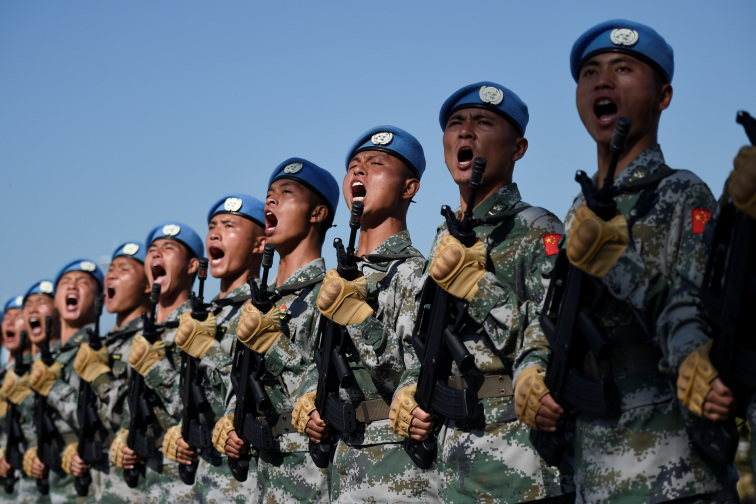
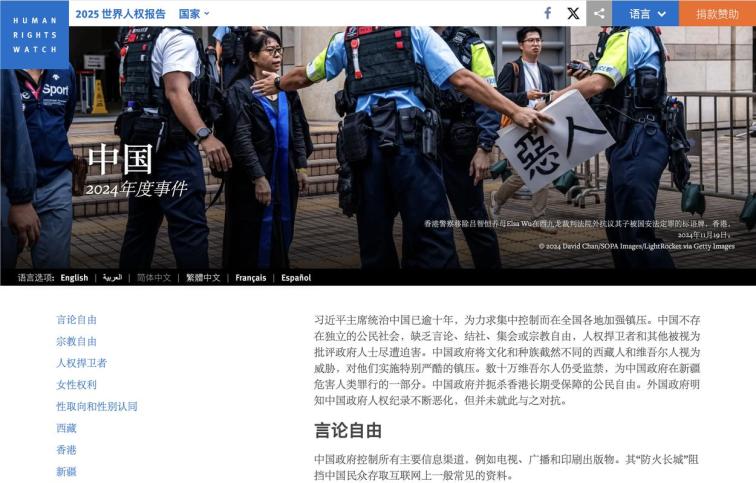
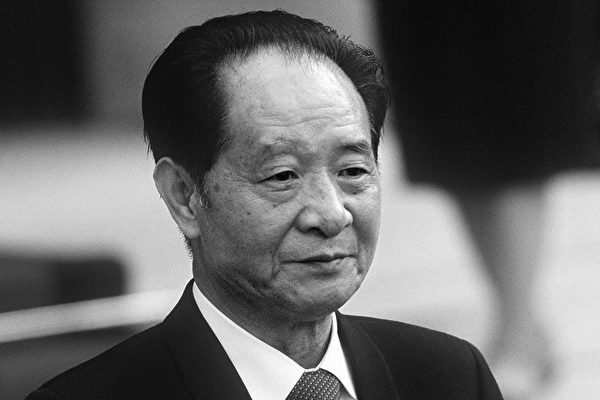
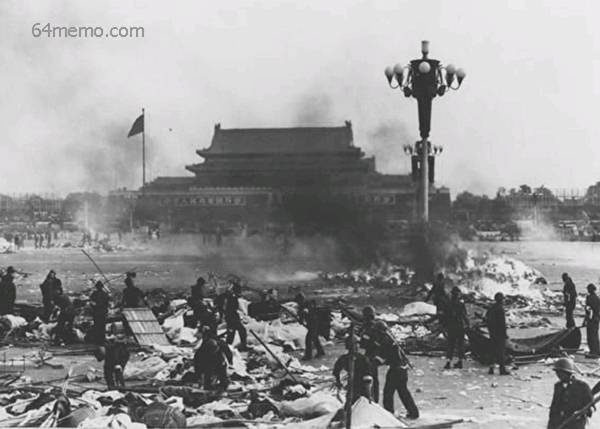

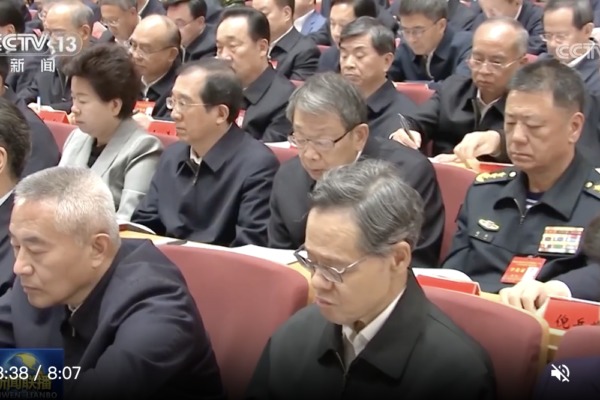



News magazine bootstrap themes!
I like this themes, fast loading and look profesional
Thank you Carlos!
You're welcome!
Please support me with give positive rating!
Yes Sure!